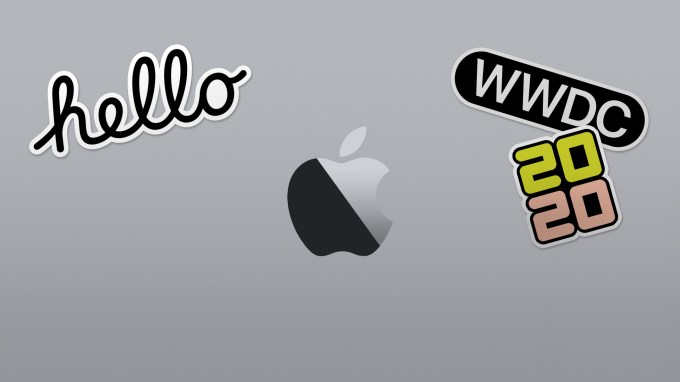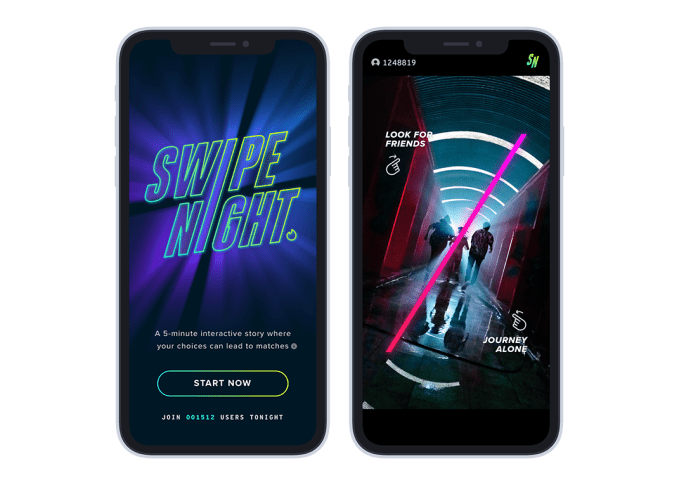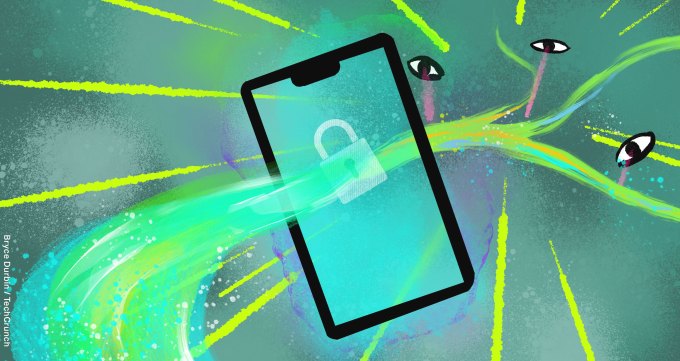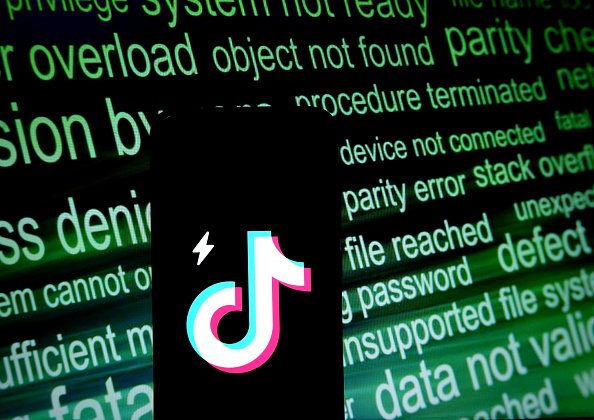Welcome back to This Week in Apps, the Extra Crunch series that recaps the latest OS news, the applications they support and the money that flows through it all.
The app industry is as hot as ever, with a record 204 billion downloads in 2019 and $120 billion in consumer spending in 2019, according to App Annie’s recently released “State of Mobile” annual report. People are now spending 3 hours and 40 minutes per day using apps, rivaling TV. Apps aren’t just a way to pass idle hours — they’re a big business. In 2019, mobile-first companies had a combined $544 billion valuation, 6.5x higher than those without a mobile focus.
In this Extra Crunch series, we help you keep up with the latest news from the world of apps, delivered on a weekly basis.
This week we’re taking a look at several stories related to the coronavirus outbreak, including the cancellation of WWDC in San Jose, as well as other app industry events that are going online. We’re also discussing the iOS 14 leak, the exposure of Sensor Tower’s app network, a potential ban on TikTok for government workers and more.
Coronavirus Special Coverage
The impacts of the COVID-19 pandemic are continuing to play out on app stores and across the industry. This week, we’re leading with these stories followed by the other — and yes, still important — news.
Apple finally cancels its WWDC event in San Jose
 Apple took its sweet time to announce its plans for WWDC in June. While Google, Facebook, Microsoft and many others canceled their real-world tech conferences, Apple stayed quiet.
Apple took its sweet time to announce its plans for WWDC in June. While Google, Facebook, Microsoft and many others canceled their real-world tech conferences, Apple stayed quiet.
When Silicon Valley this week banned large gatherings, that made a large tech conference both impossible and illegal. That was apparently what Apple needed to hear.
On Friday, Apple revealed its new plan for WWDC. Unsurprisingly, it’s an online event.
WWDC 2020 will be fully hosted online, including both the keynote and all sessions, said Phil Schiller, Apple’s senior vice president of Worldwide Marketing, in the announcement. Further details about the event will be shared between now and June through email, in the Apple Developer app and the Apple Developer website, the company said.
Apple also committed $1 million to local San Jose organizations to offset WWDC’s cancellation, which will lead to revenue losses in the area.
The event’s content may go online, but the lack of real-world networking will be a significant loss for both Apple and the community. WWDC allows developers to get face time with Apple engineers building the technology they’re putting to use, either to ask questions, get help with implementation, offer feedback or raise concerns. Networking among other attendees is invaluable as well, as it leads to opportunities and connections that can mutually benefit developers and their businesses.
Stock market fluctuations expose Robinhood’s deeper problems
 Free stock trading app Robinhood has been unable to keep up with days of heavy trading that sent stocks crashing amid growing concerns over the economic impacts of the coronavirus outbreak. The app has been struggling since earlier this month, with problems starting on Monday, March 2 when its clients missed out on the biggest one-day point gain in Dow history. The app then suffered glitches for days, leading to angry customers and even a lawsuit from a Florida client who alleges Robinhood was negligent and breached its contract by failing to provide a functioning platform.
Free stock trading app Robinhood has been unable to keep up with days of heavy trading that sent stocks crashing amid growing concerns over the economic impacts of the coronavirus outbreak. The app has been struggling since earlier this month, with problems starting on Monday, March 2 when its clients missed out on the biggest one-day point gain in Dow history. The app then suffered glitches for days, leading to angry customers and even a lawsuit from a Florida client who alleges Robinhood was negligent and breached its contract by failing to provide a functioning platform.
On Monday, March 9, Robinhood was down again on another historic day of trading when the Dow Jones Industrial Average fell 2,000 points, the S&P dropped 7.6% and the Nasdaq Composite fell 7.3%. Robinhood said it would compensate investors affected by its outage on a case-by-case basis. This was Robinhood’s third major outage in just two weeks and came just when customers need the app the most. The outages are a signal that Robinhood has underlying technical problems that weren’t exposed until the coronavirus-induced panic hit the stock market. Prior to this, Robinhood was valued at $9 billion after taking in $900 million from investors. If it’s to recover, it will have to work hard to ever regain customers’ trust.
Snapchat will stream its Snap Partner Summit online due to coronavirus outbreak
Snapchat is the latest tech company to cancel its in-person conference due to the outbreak in favor of streaming. Already, Google, Microsoft, Facebook, Apple and others have done the same. Snapchat on Monday announced it would stream its second-annual Snap Partner Summit on April 2 instead of hosting an on-site event in Los Angeles. The summit is a time when Snapchat developers, marketers, publishers and creators come together to hear about the latest updates to Snapchat’s platform and network.
While these developer events can stream their keynotes and sessions online, they can’t recreate the serendipity that comes from in-person meetings and the opportunities they bring.
Tinder cancels apocalyptic-themed show “Swipe Night”
 Out of sensitivity to the coronavirus outbreak, Tinder decided this week to cancel the international release of its apocalyptic-themed in-app video series “Swipe Night.” The company had planned to release the first season of the show to 10 new markets across Europe and Asia this quarter, in light of its recent success in boosting key app metrics here in the U.S. But the show’s apocalyptic theme seems insensitive at a time when the world is suffering from a serious health crisis.
Out of sensitivity to the coronavirus outbreak, Tinder decided this week to cancel the international release of its apocalyptic-themed in-app video series “Swipe Night.” The company had planned to release the first season of the show to 10 new markets across Europe and Asia this quarter, in light of its recent success in boosting key app metrics here in the U.S. But the show’s apocalyptic theme seems insensitive at a time when the world is suffering from a serious health crisis.
Of course, the lack of in-app entertainment is the least of Tinder’s worries at a time when health officials advise social distancing.
Tinder has already inserted in-app warnings about COVID-19 in its app, including a link to WHO resources.
Students in China spammed their remote learning app in hopes of skipping school
Students in China who have been attending school remotely due to the coronavirus outbreak thought they figured out a neat trick to skip school. They spammed their remote learning app DingTalk, which was being used by 50 million students and 600,000 teachers as of day one. The children believed if they gave the app a low rating, they could get it kicked off the App Store. The app then received more than 15,000 one-star reviews on February 11, dropping the app from a 4.9 to a 1.4 overnight. It’s now back up to 2.5 in China. Unfortunately for the students, the game didn’t work — DingTalk has remained at the top of the App Store in China, where it now sits in either the No. 1 or No. 2 spot as remote learning expands.
Niantic cancels real-world Pokémon GO and Harry Potter Wizards Unite events
Niantic is in a particularly bad place as its AR games rely on a series of real-world events to engage users. The company via Twitter has now announced that it would postpone its Community Day events for Pokémon GO and Harry Potter Wizards Unite due to the risks from the coronavirus outbreak. Instead, the company promised it would update its games with more features that would allow them to be enjoyed in “an individual setting.” Players on Twitter responded that Niantic should remove the distance requirements for battles and introduce virtual teleporting mechanisms of some sort.
Google pulls Iran’s official coronavirus app from Play Store
The Iranian government launched its own coronavirus app, AC19, but Google pulled it from the Play Store. The app’s description says it tries to “reach a clinical decision” by asking medical questions. It wasn’t immediately clear why the app was pulled. ZDNet had a malware researcher test the app for malicious behavior, but no spyware or malware was found. However, the app did ask for users’ geolocation, with consent. The app’s developer had built others for the Iranian regime that were pulled from the Play Store for secretly collecting user data for state intelligence agencies. According to sources (possibly Google not looking to be quoted), ZDNet reported that the new coronavirus app was removed because it claimed it could detect COVID-19 infections, which apps can’t do.
The app is still available for download through the ac19.ir website and other third-party app stores, the report noted.
Google details plans for online version of Game Developers Summit
Last month, Game Developers Conference organizers made the decision to postpone the event over coronavirus concerns. This week, Google announced it will host a free, digital-only experience where developers can watch the announcements and session content that was planned for GDC. The online Google for Games Developer Summit will begin on March 23rd at 9:00 AM PT with a broadcasted keynote. It will then release over 10 hours of session content, including success stories from those who conquered game testing, built backend infrastructure and launched great games.
The event will also include new announcements like Android development and profiling tools that can help deploy large APKs to devices faster, fine-tune graphic performance and analyze device memory more effectively, says Google. And Google will offer updates on specific products, like Game Servers, currently in alpha.
One sidenote: Google noted that developers who were looking forward to sharing their content at the event could use YouTube’s Live Streaming and Premieres features to do so. Those features will likely see large jumps in usage over the months ahead as more events go virtual. YouTube would be smart to start working on a virtual networking toolset that goes beyond chat boxes to accompany these features.
Other News
Sensor Tower’s network of spies spotted in the wild
 The underpinnings of how app store analytics platforms operate were exposed this week by BuzzFeed, which uncovered the network of mobile apps used by popular analytics firm Sensor Tower to amass app data. The company had operated at least 20 apps, including VPNs and ad blockers, whose main purpose was to collect app usage data from end-users in order to make estimations about app trends and revenues.
The underpinnings of how app store analytics platforms operate were exposed this week by BuzzFeed, which uncovered the network of mobile apps used by popular analytics firm Sensor Tower to amass app data. The company had operated at least 20 apps, including VPNs and ad blockers, whose main purpose was to collect app usage data from end-users in order to make estimations about app trends and revenues.
But Sensor Tower is hardly unique in terms of engaging in such a practice. Facebook, Google and even Sensor Tower rival App Annie also operate VPNs and other apps to collect data on app usage. Facebook earlier did this more surreptitiously with Onavo VPN and others, but after getting its apps kicked out, it now pays users for their data. While both App Annie and Sensor Tower apps explain during the onboarding that the data will be shared, most users don’t realize the extent of their businesses. Google and Facebook now pay for this valuable data, so users understand this is a transaction of sorts. App Annie and Sensor Tower should do the same.
Facebook tests cross-posting Stories to Instagram
Facebook is further tying itself to Instagram in its latest test. The social network confirmed it’s trialing a cross-posting feature that would allow users to post Stories to Facebook that also get posted to Instagram at the same time. The feature could be particularly time-saving for heavy users of Stories, like celebs, influencers, brands and social media managers, for example. Users have been able to post Instagram Stories to Facebook since fall 2017, so this just makes the sharing two-way. Combined, Facebook’s Stories platforms across its app — Facebook, Instagram and WhatsApp — now see 500 million daily users, or more than double Snapchat’s daily user base of 218 million.
Apple’s iOS 14 poised to threaten more app businesses

Icons for Apple’s fitness feature from the iOS 14 code
Leaks from Apple’s upcoming iOS 14 code indicate startups could have a new competitor for their fitness, wallpaper and lost item-finding businesses. The latter was already known, sending top lost-item finder Tile to testify before Congress about Apple’s anti-competitive practices. The Fitness guide app, however, is a new revelation.
According to MacRumors, Apple appears to be developing a workout guide app that would offer instructional videos for different exercises — including stretching, core training, strength training, running, cycling, rowing, outdoor walking, dance and yoga. The app would work on iOS, WatchOS and Apple TV and could hurt the now numerous fitness app businesses that today run on Apple’s platform.
In addition, Apple appears to be working to introduce a wallpaper store of sorts in its settings, which would be open to third parties. That means artists could potentially sell their work directly to users instead of having their designs listed in an aggregator app. But Apple’s move could also be bad for sites and apps like Vellum, Unsplash, Clarity, WLPPR and Walli that today offer wallpapers for download and purchase.
Meanwhile, Apple’s new AR feature could potentially impact AR startups like Blippar while also offering new competition for the AR tech coming from Snap, Google and Facebook.
A new iOS 14 homescreen?
9to5Mac reports that iOS 14 may also include a new homescreen feature that lets you see all your applications in a list view instead of only as homescreen icons or through search. This would make it easier for users to see all their apps installed — useful especially if you can’t remember which folder you stuck an app into, for instance. Users will also be able to filter apps by most-recently used and the list will include smart suggestions powered by Siri to show you which apps you may need based on time of day and location (e.g. a music app might appear after work when you hit the gym).
Intelligent homescreens are something several companies have tried to introduce over the years. Yahoo bought the Aviate launcher. Firefox partnered with smart homescreen startup EverythingMe for its Firefox Launcher. Other startups like Widdit, Snips, Cover, Nova Launcher, GO Launcher and others offered their own takes on alternative, intelligent homescreens. But they could never deliver a full experience on iOS compared to the deeper integrations possible on Android. That limited their growth. And now, Apple is finally going to eat their lunches with a smart screen of its own, it seems.
Fifth betas of iOS 13.4 roll out
The fifth beta of iOS 13.4 — as well as iPadOS 13.4, tvOS 13.4 and macOS Catalina 10.15.4 — became available this week. iOS 13.4 is notable for its support for apps that bundle their macOS and iOS apps in a single download and the new CarKey feature that will allow users to use an iPhone or Apple Watch to unlock their NFC-equipped cars. Some testers are reporting battery issues with this round of betas, so be warned.
Senators want to ban TikTok from government phones

TikTok is under increasing scrutiny in the U.S. The app has been the subject of a national security review and its acquisition of U.S. app Musical.ly may also be at risk, as TikTok parent ByteDance didn’t seek clearance from the Committee on Foreign Investment in the United States (CFIUS) when the deal took place. This week, TikTok said it was opening a “transparency center” in its LA office, which would allow outside experts to directly review how it applies its policies when moderating content, in order to head off the censorship claims that have been levied against it.
But some U.S. senators believe the app is still a threat. Senators Josh Hawley (R-Missouri) and Rick Scott (R-Florida) this week introduced a bill that would ban government employees from using TikTok on their work phones. The senators referred to the Beijing-based app as a “major security risk to the United States.” The move comes at a time when the Trump administration is making efforts to curtail the use of Chinese tech in the U.S. Meanwhile, TikTok continues to grow. According to Sensor Tower, TikTok saw a record 113 million new downloads in February, which puts it near two billion total installs to date.
Fundings and M&A
- Epic Games acquires U.K.-based facial mapping startup Cubic Motion. Deal terms weren’t available, but the startup had raised over $22 million. Epic wants to use the tech to translate an actor’s facial movements to a digital character in real time.
- Silver Lake invests $1B into Twitter, Jack stays CEO for now. This is more than an app story, but a big one considering how critical Twitter is to how we stay informed and communicate. However, Twitter needs growth and more innovation. Much of the latter today comes from users, who create workarounds for missing features that Twitter later productizes. The company calls this a strategy, but it’s really about not having a vision of how its product can and will be used.
- Telemedicine startup Heartbeat Health, which will work via an app, raises $8.2M Series A to take on heart disease in the U.S.
- Unity acquires AI game developer tools startup, Artomatix, which helps developers bring real-world materials to game worlds and speed up the process of designing in-game art.
- POS solutions provider SpotOn raises $50M to take on Square and others. The company also offers an app for consumers for deals and discounts for local businesses.
- Rentals platform Zumper, available both via web and app, raises $60M to expand in the U.S. and build out its service.
- TFLiving raises $4.8M seed for its app platform that allows a building’s residents to access, book and pay for amenities. The company works with property managers and area service providers (like yoga instructors or dog walkers, e.g.) as part of its offering.
- Horizon raises $5M to put virtual items on the blockchain and launch its first game, a digital trading card game called SkyWeaver. The free-to-play title is available on desktop, iOS and Android.


